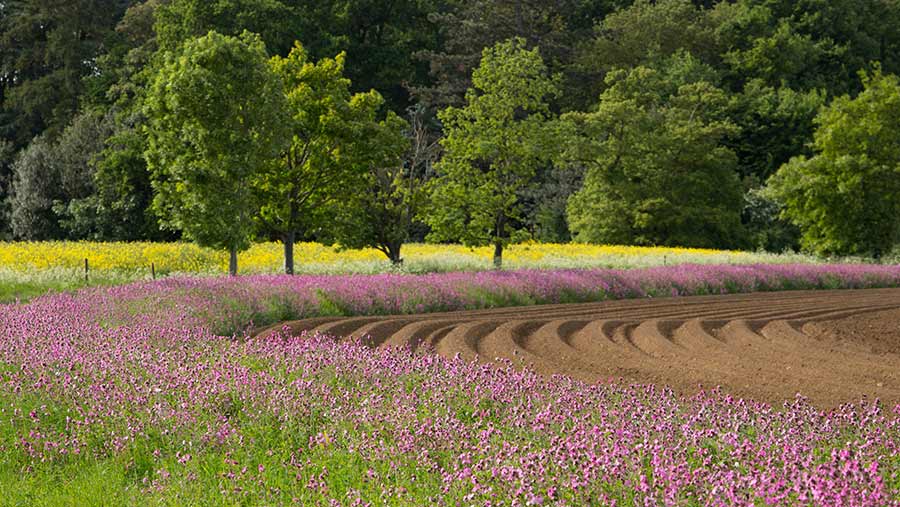Nature-friendly farm group joins food security debate
 © Tim Scrivener
© Tim Scrivener Farm businesses will go bust and food security is at risk, unless UK policy helps farmers to balance food production with nature and climate-friendly farming, so the Nature Friendly Farming Network (NFFN) has warned.
Its new Nature Means Business report suggests such an approach offers a “sweet spot”, ensuring long-term resilience and financial viability for farmers, while benefiting climate and wildlife.
The NFFN is calling on government to provide long-term funding and certainty, so farmers are properly rewarded for environmental goods. It also wants to see high environmental standards enshrined in trade deals so producers are not undercut by cheap imports.
See also: New Zealand sheep and beef farms ‘close to carbon neutral’
Alongside this, the report argues for the future funding framework and “public money for public goods” system to focus on nature-friendly agriculture, underpinned by strong environmental regulations.
“The science is clear, we are facing a climate and ecological crisis,” said NFFN chairman Martin Lines, who highlighted that more than 40% of UK species are declining and one in 10 is facing extinction.
“With the development of post-Brexit polices in motion, governments can and must be bold and deliver long-term solutions now – so that farmers can build sustainable and resilient farm businesses that produce healthy food and protect nature for future generations.
“With more than 70% of the UK’s land managed as farmland, farmers are one of the best tools that the government has to deliver on food security, biodiversity and climate targets,” he added.
“Now that we are leaving the EU, the UK has a once-in-a-lifetime opportunity to reverse these damages and help farmers to understand that long-term business sustainability, resilience to market and climate challenges, and financial viability means working in harmony with nature.
“If farmers continue to degrade natural assets, then the farming industry will collapse.”
Multi-faceted role
It is, added Mr Lines, time to change the definition of a farmer’s role. “Much of what we produce in 2020 is not food we can eat, but feed for livestock or products to generate energy. This means that a vast amount of productive farmland is no longer managed to produce healthy, high-quality and nutritious food, and our landscape is being pushed to its tipping point.
“Increasingly, I see the role of a farmer as someone who delivers a combination of food production, climate mitigation and nature protection.
“If we continue to push our production above and beyond the landscape’s capability, nature and farm businesses will be wiped out,” he warned.
Case study: David Lord, Essex
A move to no-tillage, more diverse crop rotation and the use of cover crops have been the latest measures taken at David Lord’s 750ha farm in north-east Essex.
The family has always maintained traditional habitats – hedges with good-sized verges, flower-rich margins and wild bird seed plots.
Such endeavours, said Mr Lord, support bird and insect life and help soil health.
“It has multiplied our natural capital and transformed the way we farm.”
But a long-term funding commitment from government is essential.
“Delivery of nature-friendly farming takes time to establish and maintain, but can be torn apart in a very short time.
“We need a long-term commitment to a simple, pragmatic and well-funded scheme, coupled with good communication between the government and farmers, and facilitation of knowledge exchange between farmers.”
